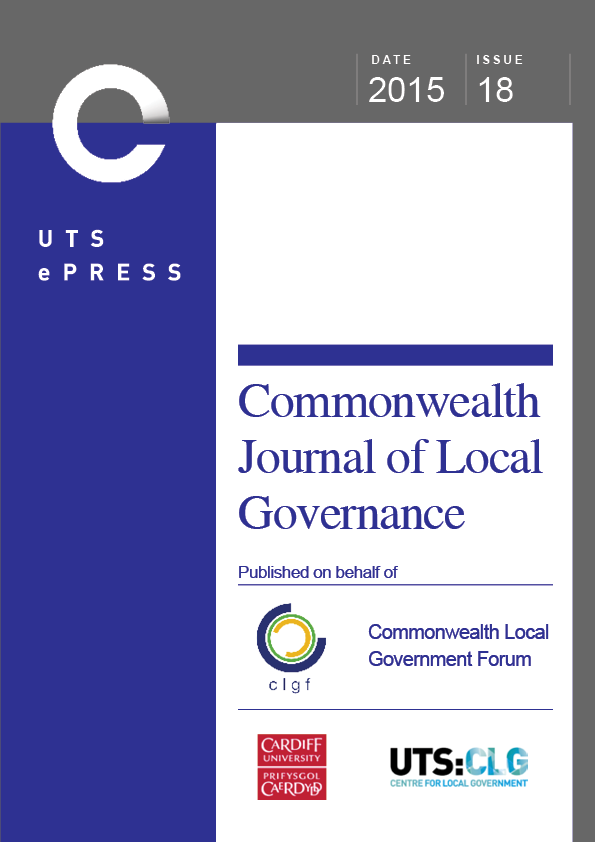Women’s leadership in local government in the Caribbean
Main Article Content
Abstract
Women and men are traditionally cast in different roles, with males being leaders in the workplace, home and government. In contrast, communities promote women as caregivers who support male leaders and shape future generations as mothers, mentors and teachers. In recognition of this societal view of women that often led to inequality and inequity, the UNDP listed Gender Equality and empowering women as one of eight Millennium Development Goals. The post-2015 Sustainable Development Goals, adopted by the United Nations in autumn 2015, also included gender equality and empowering women as Goal 5.
In its work in the Caribbean, the Caribbean Local Economic Development Project (CARILED) examined gender as it relates to micro, small and medium enterprise (MSME) development in six Caribbean countries. The findings of this study showed gender gaps for both male and female entrepreneurs in different areas of development. Traditionally gendered roles for MSME sectors, access to financing and lack of adequate guidance or community support were some areas that affected men and women differently in the region.
The study outlines ways in which male and female leaders can address traditional gender roles by identifying priority areas for development, creating an enabling environment for start-ups and expansion, and fostering a policy and legislative base that facilitates ease of doing business. The recommendations further describe the public–private partnerships needed to successfully meet gender gaps, and the importance of both elected officials and technocrats in inter alia community engagement and advocacy towards local economic development.
The importance of gender equality among elected officials and technocrats, and the influence gender has on determining priority areas of focus within local government strategic plans for communities are also set out within this paper.
Article Details
Issue
Section
Authors who submit articles to this journal from 31st March 2014 for publication, agree to the following terms:
a) Authors retain copyright and grant the journal right of first publication with the work simultaneously licensed under a Creative Commons Attribution License that allows others to share and adapt the work with an acknowledgement of the work's authorship and initial publication in this journal.
b) Authors are able to enter into separate, additional contractual arrangements for the non-exclusive distribution of the journal's published version of the work (e.g., post it to an institutional repository or publish it in a book), with an acknowledgement of its initial publication in this journal.
c) Authors are permitted and encouraged to post their work online (e.g., in institutional repositories or on their website) prior to and during the submission process, as it can lead to productive exchanges, as well as earlier and greater citation of published work (See The Open Access Citation Advantage Service). Where authors include such a work in an institutional repository or on their website (ie. a copy of a work which has been published in a UTS ePRESS journal, or a pre-print or post-print version of that work), we request that they include a statement that acknowledges the UTS ePRESS publication including the name of the journal, the volume number and a web-link to the journal item.
d) Authors should be aware that the Creative Commons Attribution (CC-BY) License permits readers to share (copy and redistribute the work in any medium or format) and adapt (remix, transform, and build upon the work) for any purpose, even commercially, provided they also give appropriate credit to the work, provide a link to the license, and indicate if changes were made. They may do these things in any reasonable manner, but not in any way that suggests you or your publisher endorses their use.
For Issue 13/14, and all issues before, the following copyright applied:
Authors submitting a paper to UTS ePRESS publications agree to assign a limited license to UTS ePRESS if and when the manuscript is accepted for publication. This license allows UTS ePRESS to publish a manuscript in a given issue. Articles published by UTS ePRESS are protected by copyright which is retained by the authors who assert their moral rights. Authors control translation and reproduction rights to their works published by UTS ePRESS. UTS ePRESS publications are copyright and all rights are reserved worldwide. Downloads of specific portions of them are permitted for personal use only, not for commercial use or resale. Permissions to reprint or use any materials should be directed to UTS ePRESS via the journal's main editor, Alison Brown, journal@clgf.org.uk
